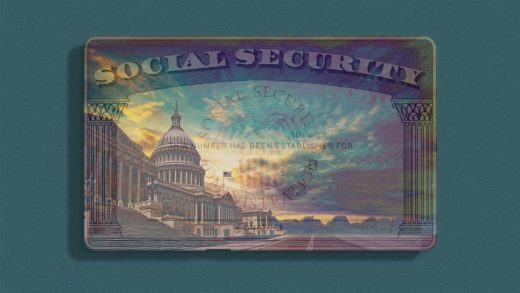Debt ceiling crisis: What happens to Social Security, Medicare, and Child Tax Credits?
Tensions are high in Washington this week: With the U.S. government hurtling past its debt ceiling, Congress is scrambling to pass a new borrowing limit before October 18, the day federal cash is expected to run out. But negotiations have stalled to a partisan deadlock in recent weeks, and with the threat of default looming, politicians and citizens alike are growing sweaty-palmed.
Dire words have been tossed to describe what happens if the government can’t pay its bills: “cataclysm,” “economic catastrophe,” “fiscal calamity.” The White House explains it as far worse than a government shutdown (when Congress fails to pass a spending bill, rather than a borrowing bill). In a Capitol Hill hearing, Treasury Secretary Janet Yellen said, “It would be disastrous for the American economy, for global financial markets, and for millions of families and workers whose financial security would be jeopardized by delayed payments.” Credit rating firm Moody’s reported that the country could plunge into a sudden recession, and up to 6 million jobs and $15 trillion in household wealth could be lost.
Here’s what’s at stake for specific federal programs:
But that’s not all—numerous programs could be impacted. Government employees and postal workers could stop receiving paychecks. Military members could stop receiving paychecks. Federal Emergency Management Agency (FEMA) aid to hurricane and wildfire victims—crucial, amid raging fires on the west coast and Hurricane Ida recovery—could be halted. Pandemic mitigation efforts, funded by public health dollars, could be hurt. U.S. credit worthiness could be downgraded, spiking interest rates on mortgages, car loans, and credit card bills. Tax refunds could take even longer.
This sounds bad. Any good news?
It’s looking likely that Congress can swerve to avoid such a crisis—at least for a few more months. On Thursday, it was reported that Senate Majority Leader Chuck Schumer and Senate Minority Leader Mitch McConnell were finalizing an agreement to extend the nation’s debt ceiling through early December. The deal would come after McConnell and other Republican legislators had staunchly refused to consider raising the debt ceiling over the last three months, prompting calls from Democrats to weaken the filibuster, the GOP’s chief weapon for blocking stopgap measures to increase the debt cap. With a deal in sight, some might be breathing an immediate sigh of relief, but many recognize it as simply—as the White House put it—”kicking the can down the road.” Another showdown awaits, as lawmakers on both sides of the aisle must meet eye-to-eye about long-term debt rules—and Americans, again, will be forced to see who blinks first.
The debt ceiling currently stands at $28.4 trillion; the government debt is hovering around $28.8 as of midday Thursday, according to USDebtClock.org.
(35)



